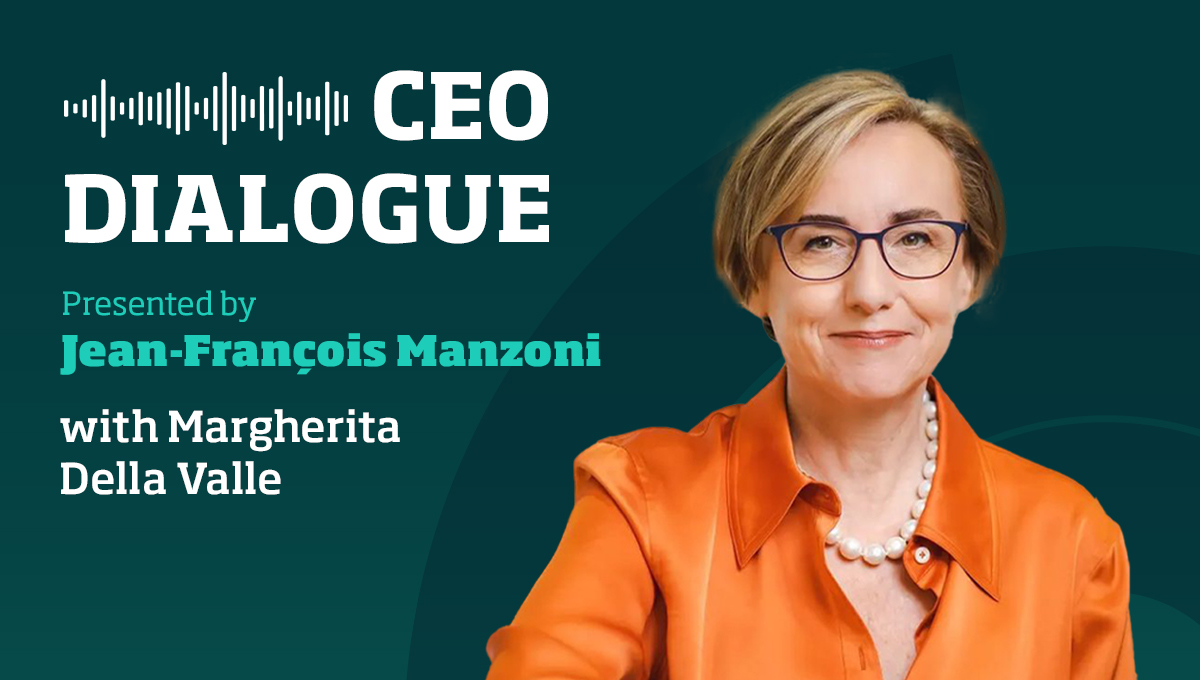Five reflection themes for leaders

Crises can be devastating but do have a silver lining. Research shows that throughout their lives, most senior leaders learn – and grow – from these unexpected events.
During this webinar – which appeared live on 12th June 2020 – Ben Bryant, IMD Professor of Leadership and Organization, focuses on the question of what the current pandemic can teach us about our own leadership. By examining what is truly important to us, we can decide what we must hang on to, and what are we be prepared to let go of.
At a time when everyone is worried about what will happen next, Professor Bryant invites leaders to park their anxiety and reflect on the here and now.
Accepting change
Professor Bryant examines how life-changing events affect our lives: “These are the big events that shape our lives and include those we have no control over and some that we do have control over,” he explains.
Life-changing events are typically marriage, divorce, children, death, the pandemic, getting the dream job, getting fired, natural disasters and the lockdown. Since the start of the pandemic, health issues abound, movement has been constrained and economic instability has reigned…how has this shifted us in some way, shape or form?
Professor Bryant encourages participants to reflect on their own experiences and look closely at thoughts, ideas or feelings that they might not often stop to think more deeply about.
“What about those crazy thoughts, those mad thoughts, that you might dismiss or that you try to push away?” he asks.
Losing control
It is vital for people to notice what they’re doing differently and why, Professor Bryant says. How much control do you have over what is happening to you and what are your responses?
Much of our behavior can be chalked up to our specific priorities. These wants and needs of life are very important and fall into three basic categories: security, ego and discovery. As we are all different, we all have differently weighted needs.
Professor Bryant asks participants to allocate importance to these various needs, helping them to examine the changes in their needs since the beginning of the year.
He states that a typical response to loss of control is to take more control in areas we are able to access. This alleviates anxiety but can have disastrous effects depending on the level of control. The mind has to deal with anxiety by finding other sources of comfort.
High achievers – this includes many leaders – generally rate their security needs fairly low and most of their focus goes into recognition and power. These needs will shift as you travel through life. The primary needs – comfort and security, for example, become more important as you age, while power becomes nearly irrelevant at the end of life.
The new normal
COVID-19 has sparked thoughts of security and employment in ways some leaders might not have experienced earlier. Most people have had to reinvent new routines and adapt their lives in some ways. In the absence of the old rhythms, people change what they how they behave, which in turn changes how they think.
The least important needs after the lockdown have become power and recognition. As our roles as leaders have changed, the new distribution of authority means leaders must release control over those things they no longer manage.
Will the pandemic and lockdown indeed be a life-changing event?
“Only if we want it to be,” ends Professor Bryant.
Research Information & Knowledge Hub for additional information on IMD publications
Many executives say they don’t have time for mindfulness practices, such as daily meditation. An alternative is micro-presence: weaving moments of ...
Technological innovation, advances in remote work, and reshaped post-pandemic priorities have led to companies hiring fractional leaders, or part-t...
In recent years, sustainable leadership has emerged as a powerful force reshaping corporate strategies worldwide. At its core, sustainable leadersh...
Research Information & Knowledge Hub for additional information on IMD publications
Research Information & Knowledge Hub for additional information on IMD publications
in I by IMD 5 July 2024
Research Information & Knowledge Hub for additional information on IMD publications
in HBR.org 2 July 2024
Research Information & Knowledge Hub for additional information on IMD publications
in I by IMD 28 June 2024
Research Information & Knowledge Hub for additional information on IMD publications
Research Information & Knowledge Hub for additional information on IMD publications
Research Information & Knowledge Hub for additional information on IMD publications
Research Information & Knowledge Hub for additional information on IMD publications
in I by IMD 19 June 2024
Research Information & Knowledge Hub for additional information on IMD publications
Research Information & Knowledge Hub for additional information on IMD publications








